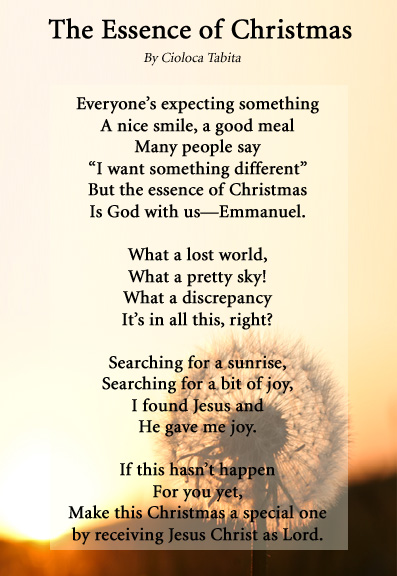Unpacking the Essence: The Meaning of "Christmas"
Related Articles: Unpacking the Essence: The Meaning of "Christmas"
Introduction
In this auspicious occasion, we are delighted to delve into the intriguing topic related to Unpacking the Essence: The Meaning of "Christmas". Let’s weave interesting information and offer fresh perspectives to the readers.
Table of Content
Unpacking the Essence: The Meaning of "Christmas"

The word "Christmas" holds a profound significance that transcends its simple definition as a holiday. It encapsulates a complex tapestry of religious, cultural, and social elements, weaving together history, tradition, and personal meaning. To truly understand the word, one must delve into its etymology, explore its evolution, and examine its multifaceted impact on individuals and societies worldwide.
Etymological Roots: A Journey Through Time
The word "Christmas" originates from the Middle English term "Cristes Masse," literally translating to "Christ’s Mass." This phrase reflects the core of the holiday’s religious foundation, marking the celebration of the birth of Jesus Christ, a pivotal figure in Christianity. The word’s evolution can be traced back to Old English, where "Cristes mæsse" held the same meaning.
The connection to "Mass," a central liturgical service in the Catholic Church, further emphasizes the religious significance. It highlights the celebration as a time for communal worship and remembrance of Christ’s birth. This historical context underscores the deep-rooted religious origins of Christmas and its importance within the Christian faith.
Beyond Religion: The Cultural Tapestry of Christmas
While Christianity serves as the bedrock of Christmas, the holiday has transcended its religious origins to become a global cultural phenomenon. This evolution is reflected in the diverse traditions and celebrations associated with Christmas, ranging from festive decorations and gift-giving to family gatherings and joyous carols.
The commercialization of Christmas, particularly in the Western world, has further shaped its cultural landscape. The exchange of gifts, adorned Christmas trees, and elaborate decorations have become synonymous with the holiday, creating a vibrant commercial ecosystem around it.
This commercialization, however, is not without its critics, who argue that it detracts from the original religious meaning and promotes consumerism. Nevertheless, the cultural impact of Christmas remains undeniable, shaping social interactions and creating shared experiences for individuals across diverse backgrounds.
The Importance of Christmas: A Blend of Values and Practices
The enduring relevance of Christmas lies in its ability to encapsulate a range of values and practices that resonate with individuals on a personal level. The holiday symbolizes hope, joy, and the spirit of giving, encouraging individuals to connect with loved ones, reflect on their blessings, and extend kindness to others.
This focus on generosity and compassion forms a core aspect of Christmas, emphasizing the importance of community and shared experiences. The holiday also encourages introspection and reflection, prompting individuals to consider their own values and the meaning of life.
Benefits of Christmas: A Time for Connection and Reflection
The benefits of Christmas extend beyond the festive celebrations and commercial aspects. The holiday provides a unique opportunity for individuals to:
- Strengthen Family Bonds: Christmas fosters a sense of togetherness, encouraging families to gather, share memories, and create new traditions.
- Cultivate Generosity: The spirit of giving inherent in Christmas encourages acts of kindness, fostering empathy and compassion within communities.
- Promote Reflection and Gratitude: The holiday prompts individuals to reflect on their blessings and appreciate the positive aspects of their lives.
- Spread Joy and Happiness: The festivities associated with Christmas create a joyful atmosphere, spreading happiness and positive emotions among individuals.
FAQs: Addressing Common Questions
1. What is the origin of the Christmas tree?
The origin of the Christmas tree is steeped in folklore and tradition. While its exact origins are debated, the practice is believed to have originated in Germany during the 16th century. Early Christians used evergreen trees to symbolize eternal life, and the practice of decorating trees with candles and ornaments evolved over time.
2. Why do people exchange gifts during Christmas?
Gift-giving during Christmas is rooted in the biblical story of the Three Wise Men who brought gifts to the newborn Jesus. The tradition evolved over time, becoming a symbol of generosity, love, and appreciation.
3. What are the different Christmas traditions around the world?
Christmas traditions vary significantly across cultures and countries. Some common practices include:
- Christmas Eve Dinner: In many countries, families gather for a special Christmas Eve dinner, often featuring traditional dishes.
- Christmas Carols: Singing Christmas carols is a popular tradition in many cultures, spreading joy and festive cheer.
- Christmas Markets: In Europe, Christmas markets are bustling with vendors selling festive goods, food, and drinks.
- Santa Claus: The figure of Santa Claus, based on the historical figure of Saint Nicholas, is a central figure in many Christmas celebrations, particularly in the Western world.
4. Is Christmas a religious holiday?
While Christmas originated as a religious holiday celebrating the birth of Jesus Christ, it has evolved into a cultural phenomenon celebrated by individuals of diverse faiths and backgrounds.
Tips for Celebrating Christmas Meaningfully:
- Focus on the Spirit of Giving: Engage in acts of kindness and generosity, whether through volunteering, donating to charities, or simply offering a helping hand to those in need.
- Prioritize Family and Friends: Make time for meaningful connections with loved ones, sharing stories, creating memories, and celebrating together.
- Embrace the Joy of the Season: Engage in festive activities that bring joy and happiness, such as singing carols, decorating a tree, or attending a Christmas concert.
- Reflect on the True Meaning: Take time for personal reflection, considering the values and messages associated with Christmas, such as love, compassion, and hope.
Conclusion: The Enduring Legacy of Christmas
The word "Christmas" encompasses a rich tapestry of history, culture, and personal meaning. It represents a time for celebration, reflection, and connection, offering opportunities for individuals to express their values, strengthen relationships, and spread joy and kindness. While its origins lie in religious faith, Christmas has transcended its religious boundaries to become a global cultural phenomenon, shaping social interactions and creating shared experiences for individuals worldwide. As the holiday continues to evolve, its core values of generosity, compassion, and hope remain timeless, ensuring its enduring legacy for generations to come.








Closure
Thus, we hope this article has provided valuable insights into Unpacking the Essence: The Meaning of "Christmas". We appreciate your attention to our article. See you in our next article!